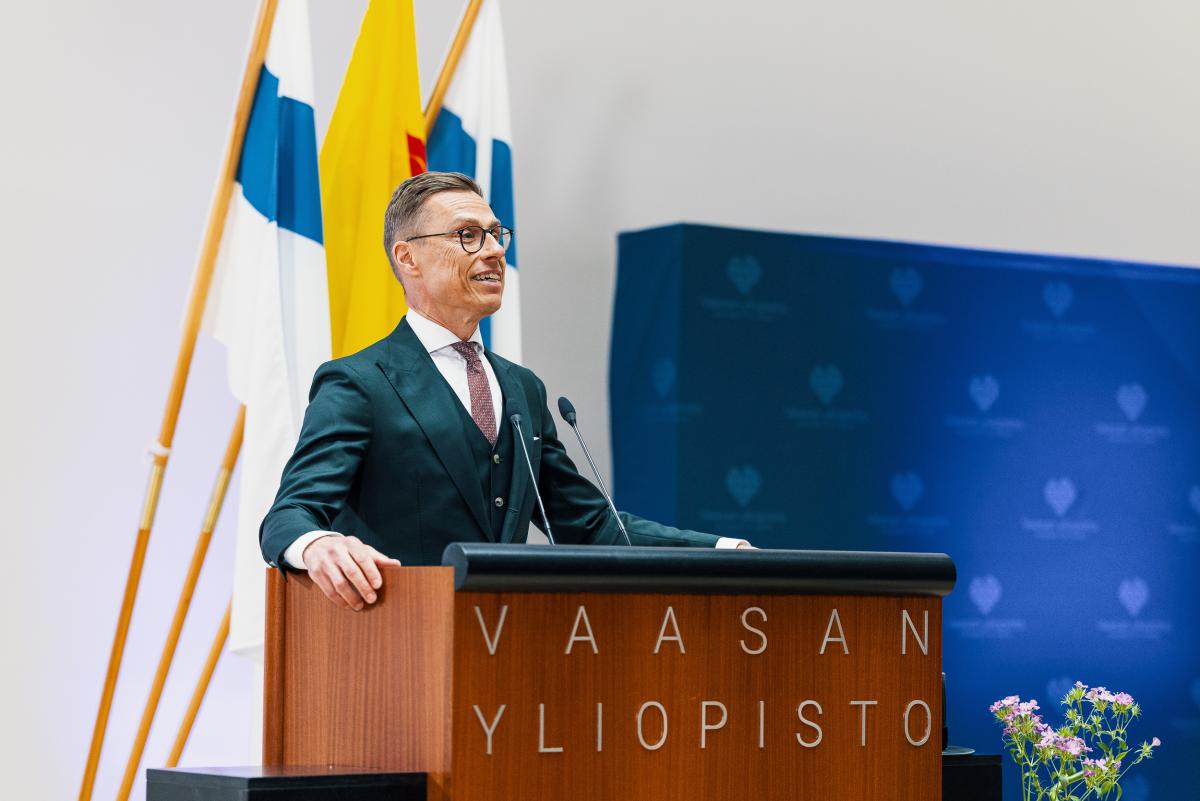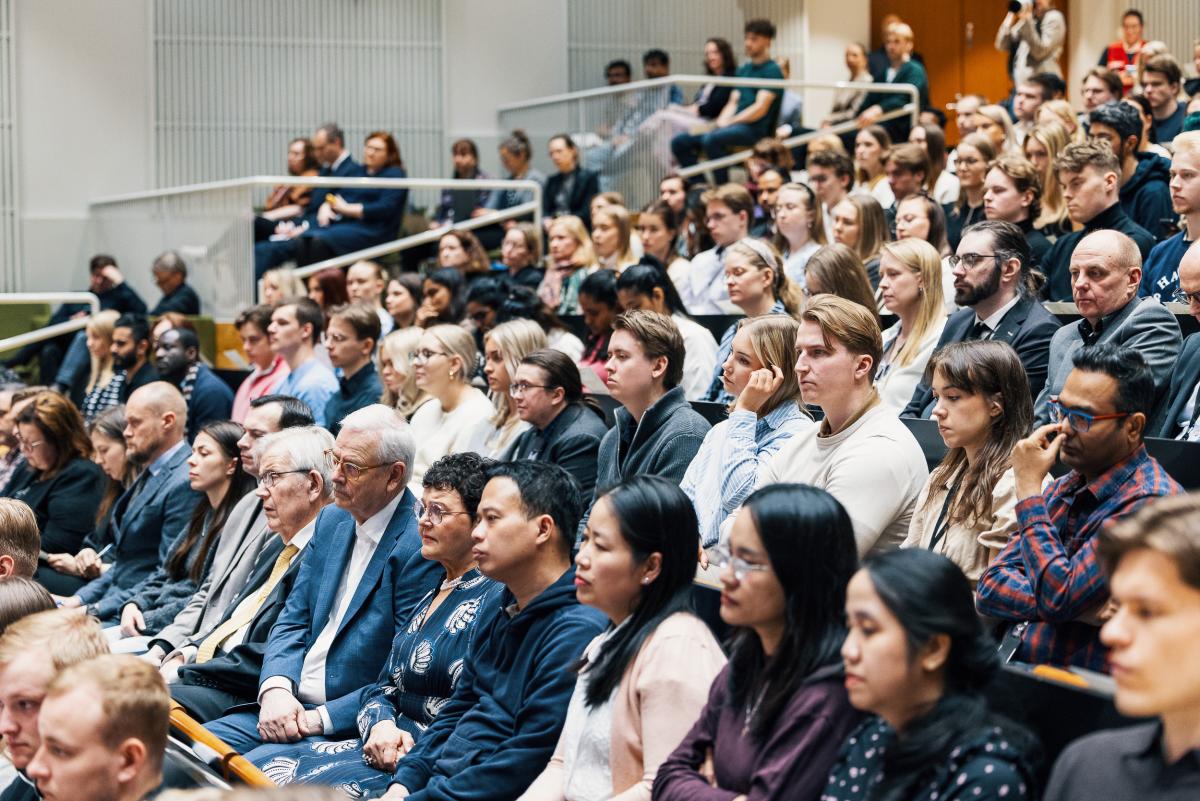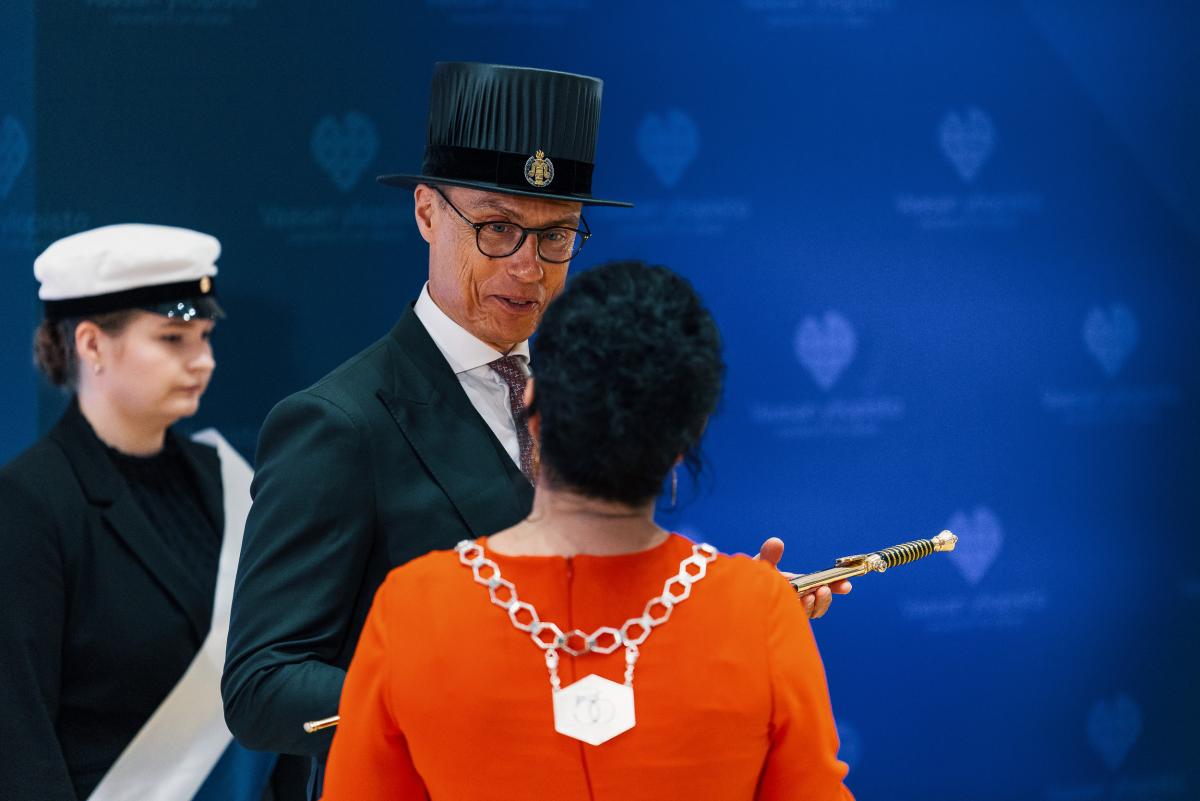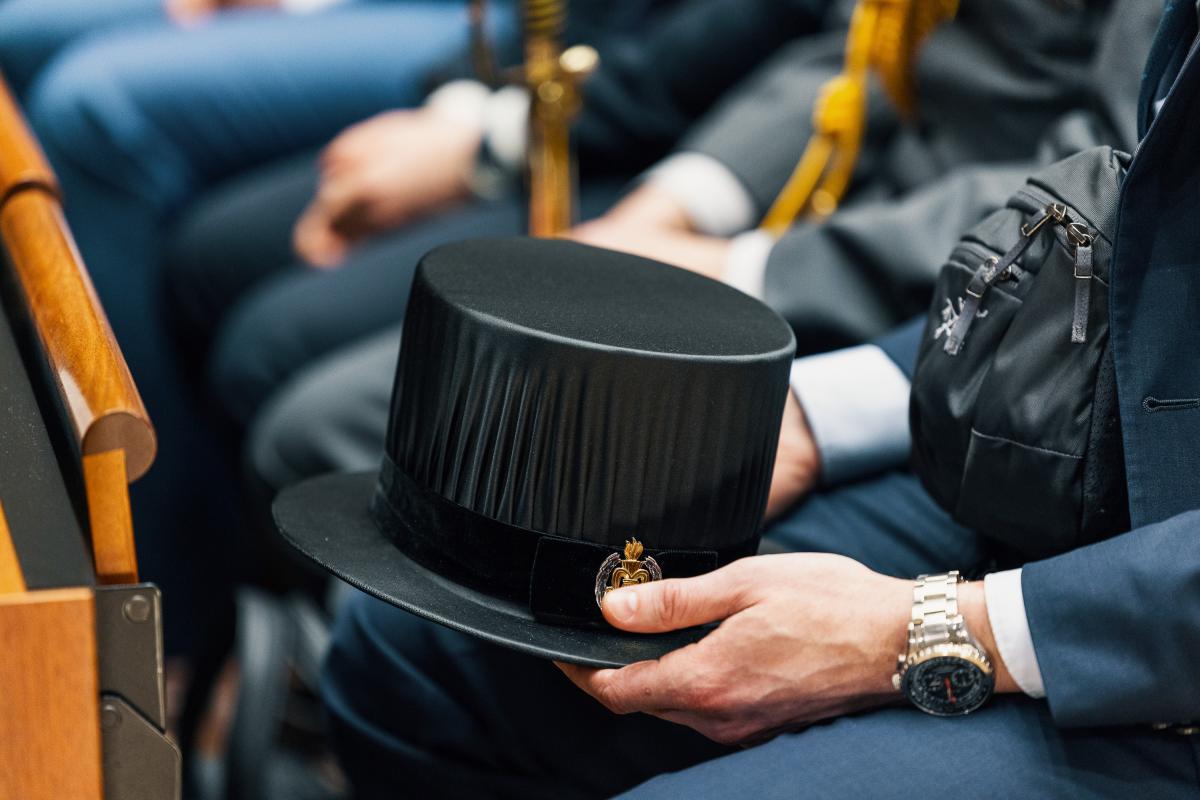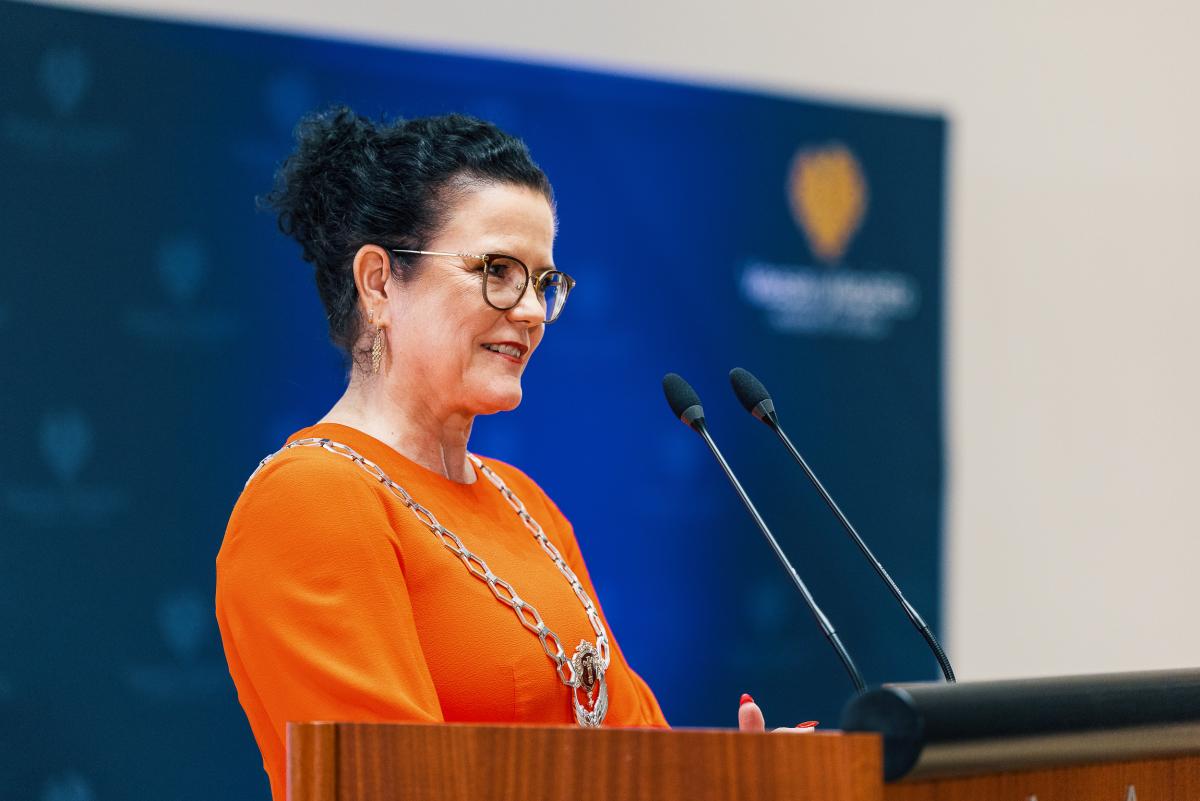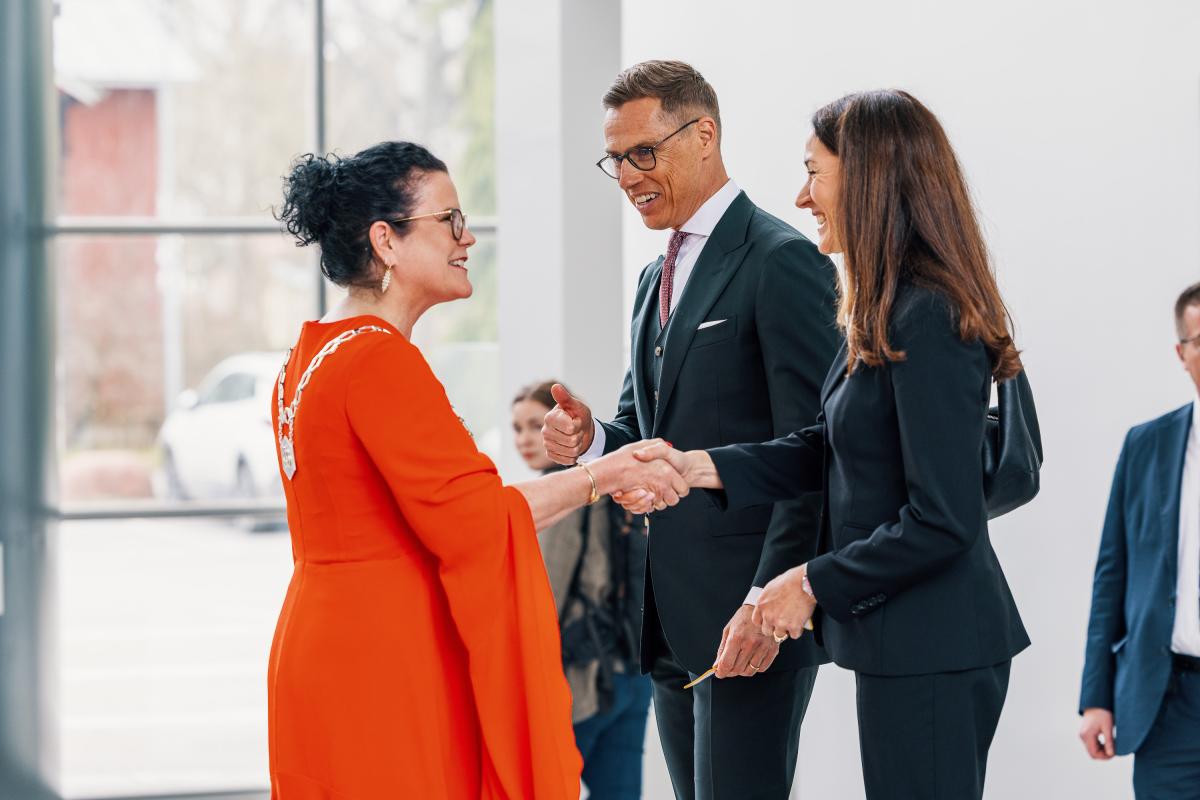Honorary Doctor, President Alexander Stubb: We are living through a bigger systemic change in world politics
In his speech, President Alexander Stubb spoke about the transformation of world politics and his forthcoming book The Triangle of Power – Rebalancing the New World Order. He said there have been many signs of change in the world order, from the 9/11 attacks to the financial crisis, the rise of populism and Brexit, but the turning point for Stubb was when Russia attacked Ukraine in February 2022.
– For me, the battle is between the multipolar world, which has less rules, and a multilateral world, which has more rules.
According to Stubb, there are currently three major spheres of power in the world: the global West, the global East, and the global South.
– My big thesis is that the one who is going to decide the next world order is actually the global South. It will determine whether we tilt towards multipolarity, driven by the global East, or multilateralism, driven by the global West.
The West, he argues, should engage in a whole new form of dialogue and cooperation with the Global South.
– Right now, we're living in this sort of mix in the balance, where the balance hasn't settled. After World War II, it settled towards the West. After the Cold War, it was very much around the United States. And now, in this multipolar world, we don't know exactly the direction in which it's going to go.
At the end, President Stubb spoke about the dynamics of power. Competition is a dynamic that drives us forward, but the problem arises if it is misused.
– We are seeing, for instance, right now, a competition of tariffs and customs, which is breaking the old economic order. The worst thing that can happen, is that geopolitical competition leads to conflicts.
Another dynamic is cooperation. In order for there to be competition that does not spill over into conflict, cooperation has to be based on new rules.
– The paradox of our time is that at exactly the point when we need cooperation on climate change, on technology, energy, development, and on migration, is exactly the moment when we're trying to tear the institutions where this could be done apart. And we need to, in my mind, work against that.
So where is the world heading? According to President Stubb, one possibility is that we are moving to an à la carte world, where everyone is only looking after their own interests, and it is a very Machiavellian world. Another possibility is increasing regional integration, with cooperation closer to home. The third possibility, which President Stubb himself hopes for, is a global deal on new rules and norms within existing institutions.
Stubb reminded the students, staff and other audience members at the University of Vaasa that in the current period of disorder, it is important to keep your head cool, analyse and think about how to make a difference.
– My message is that you all have agency to change the world. This is what I hope you will take away from this speech.
After the speech, President Stubb answered questions from students on issues such as concerns about the state of the world and trade tensions between the US and China.
Honorary doctorate with hat, sword and diploma
In her opening speech, Minna Martikainen, Rector of the University of Vaasa, spoke of the President's remarkable career in Finnish and international politics and academia. She said that President Alexander Stubb is an exemplary international leader who, throughout his career, has emphasised the importance of knowledge and science in decision-making.
The University of Vaasa awarded President Stubb an honorary doctorate in philosophy at the conferment ceremony last autumn. This is the highest distinction a university can bestow.
At Tuesday's event, Rector Martikainen gave the President the symbols of an honorary doctorate: a hat, a sword and a diploma, together with Dean Merja Koskela. The doctoral hat symbolises academic freedom and the pursuit of knowledge. The sword stands for knowledge and truth.
– I would like to thank the University of Vaasa for bestowing upon me an honorary doctorate degree. I do appreciate it dearly, said President Stubb.
"Universities can and must play a central role in change"
In her speech, Rector Minna Martikainen also outlined the important role of universities in a changing world.
– We live in a changing world, where the geopolitical situation, the changing security environment, growing uncertainty and climate change are challenging society and the economy. At the University of Vaasa, we believe that universities can and must play a central role in this change. Through research, we bring understanding, perspectives and tools that enhance the resilience of businesses, society and citizens, and help us towards a more sustainable society.
Martikainen said that the University of Vaasa has recently established a multidisciplinary Preparedness and Resilience Research Platform to strengthen research on economic and societal resilience, comprehensive security and preparedness.
She pointed out that resilience is also required of universities and researchers. Safeguarding academic freedom is now even more important than ever.
– Unfortunately, we are currently witnessing threats to university autonomy and freedom of expression for researchers around the world, even in places where we previously thought we would not see them.
President Stubb also drew attention to this. He stressed that the core of liberal democracy is the autonomy and strong role of universities.
Photos: Christoffer Björklund
Watch the ceremony and President Stubb’s lecture on video:
Honorary Doctorate Celebration for Alexander Stubb 29 April 2025

